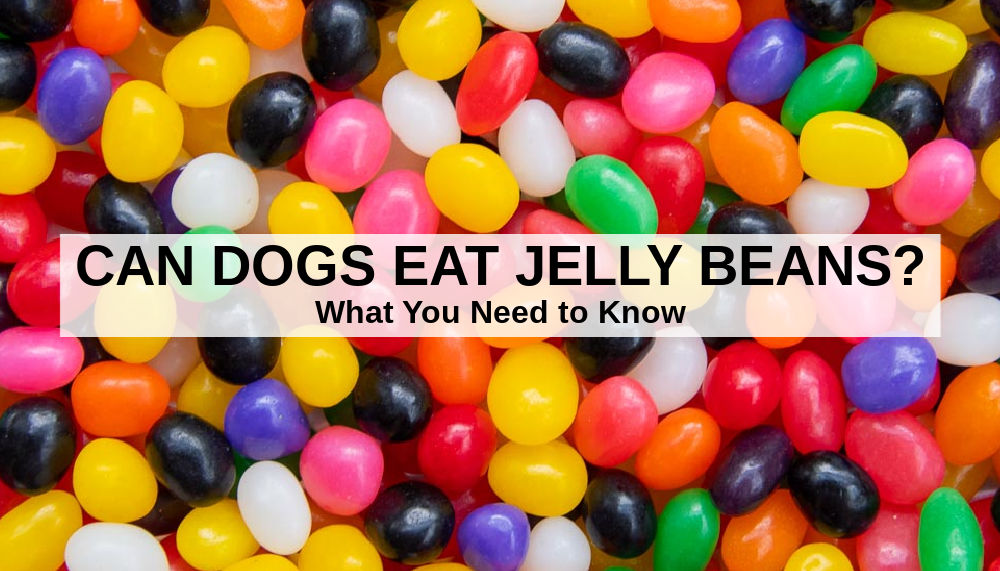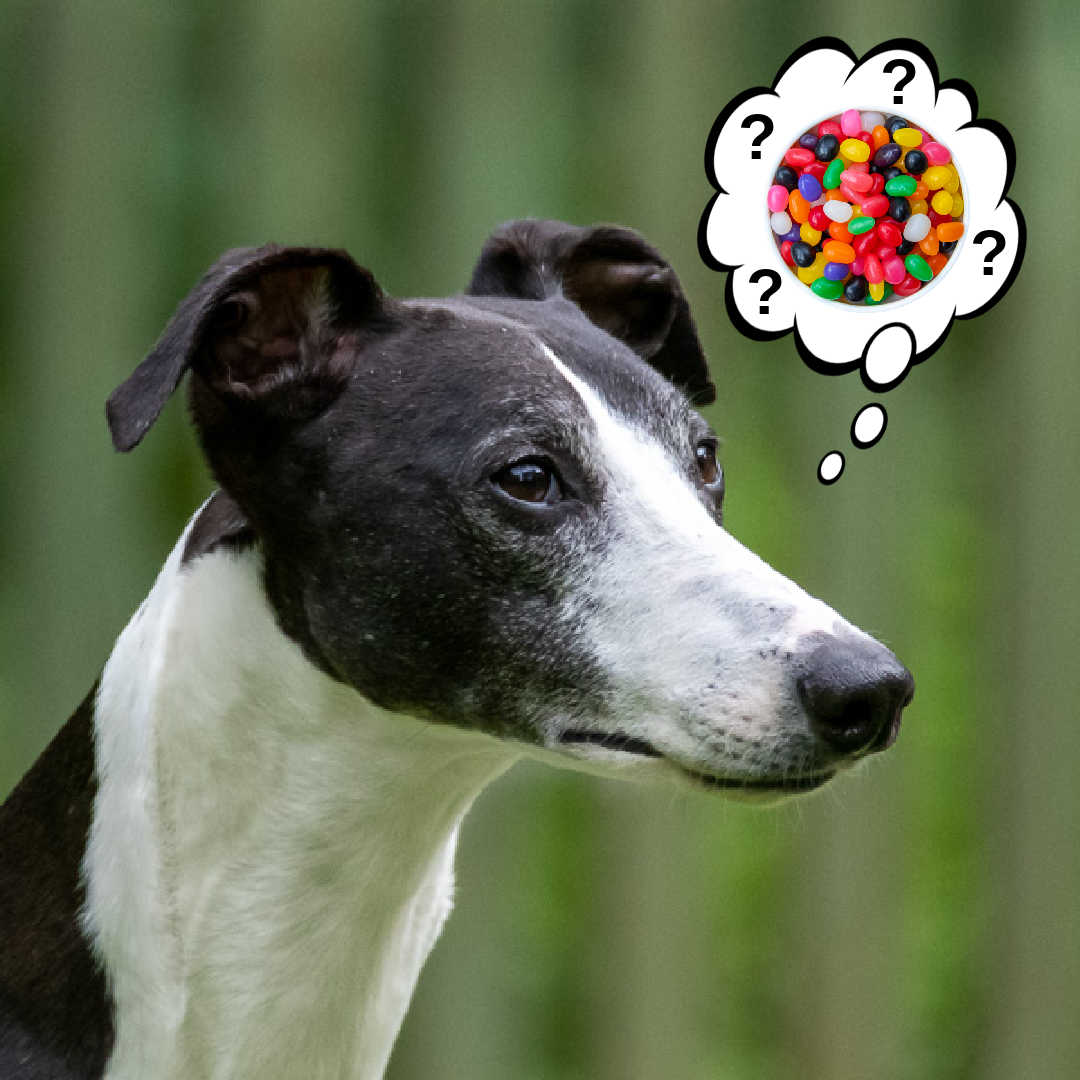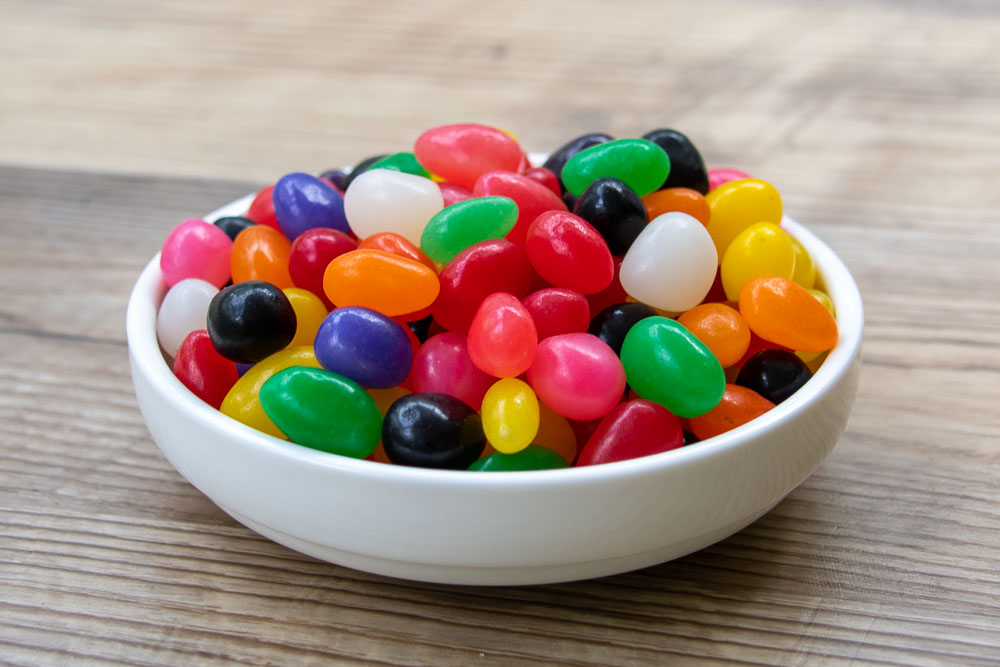Fall is a time when dogs can’t resist sneaking into candy jars and loose bags of sweets. But are jelly beans safe for our furry friends? In this guide, we will take a closer look at the potential dangers jelly beans pose to dogs and provide you with all the information you need to keep your pet safe.
Can Dogs Eat Jelly Beans?
No, dogs should never eat jelly beans. These colorful candies contain ingredients that can be harmful to our canine companions. They are often packed with sugar, xylitol, pectin, and caffeine, all of which can pose serious health risks for pets.
Excessive sugar consumption can increase the risk of diabetes, obesity, and heart disease in dogs. Xylitol, a sweetener found in sugar-free jelly beans, is particularly toxic for dogs. Its ingestion can cause a sudden drop in blood sugar and blood pressure, leading to vomiting, seizures, and even death. Additionally, jelly beans may contain artificial ingredients like dyes and preservatives, to which some dogs may be allergic.
My Dog Ate Jelly Beans – What Do I Do?
If your dog has consumed one or two jelly beans without xylitol, chances are they will be okay. However, it’s crucial to check the ingredients on the bag to ensure no harmful substances were ingested.
Keep a close eye on your pet for signs of toxicity, such as lethargy, tremors, drooling, vomiting, and diarrhea. If you notice any unusual behavior, contact your vet immediately.
Can Dogs Eat Licorice Jelly Beans?
Although licorice root is toxic to dogs in large quantities, a few black jelly beans are unlikely to harm your pet. However, if your dog happens to devour an entire bag of licorice jelly beans, it’s best to call your vet and monitor them closely for signs of increased blood pressure.
Can Dogs Eat Jelly Belly Jelly Beans?
Jelly Belly is a popular brand of jelly beans, but they should be kept away from dogs. These candies are loaded with sugar, which can damage your pet’s teeth and lead to obesity and diabetes. If your dog has consumed a few Jelly Belly jelly beans, they will likely be fine. However, be cautious and prevent them from consuming any other sugary treats.
Can Dogs Eat Jolly Rancher Jelly Beans?
Jolly Rancher jelly beans contain artificial flavors and colors that could make your dog sick if they are allergic to such ingredients. To ensure your pet’s well-being, it’s best to keep these candies away from them.
Can Dogs Eat Starburst Jelly Beans?
Although Starburst jelly beans may be sweetened with apple juice, they also contain artificial flavors and colors. These candies should be avoided, as they can be harmful to your dog. If your pup happens to ingest some, monitor them closely for signs of an allergic reaction and contact your vet if you notice any unusual behavior.
Frequently Asked Questions
Q: What should I do if my dog eats jelly beans?
A: If your dog has consumed jelly beans, check the ingredients on the bag and ensure no harmful substances are present. Monitor your pet for any signs of toxicity and contact your vet if you notice any abnormal behavior.
Q: Are jelly beans with xylitol safe for dogs?
A: No, jelly beans containing xylitol are highly toxic to dogs and can lead to severe health issues, including seizures and even death.
Q: Can dogs eat licorice jelly beans?
A: A few licorice jelly beans are unlikely to harm your dog, but if they consume a large quantity, it’s best to consult your vet.
Q: Can dogs eat jelly beans from popular brands like Jelly Belly, Jolly Rancher, and Starburst?
A: It is not recommended for dogs to consume jelly beans from these brands due to the high sugar and artificial ingredient content.
Conclusion
To ensure the safety and well-being of your furry friend, it’s best to keep jelly beans away from them. Excessive consumption of these candies can lead to allergic reactions, and if the jelly beans contain xylitol, it can result in poisoning. Remember, it’s always better to be safe than sorry when it comes to your pet’s health.
For more information on pet safety and nutrition, visit Pawsoha and explore our range of helpful articles and resources.
📌 Pin this to save and share 📌


